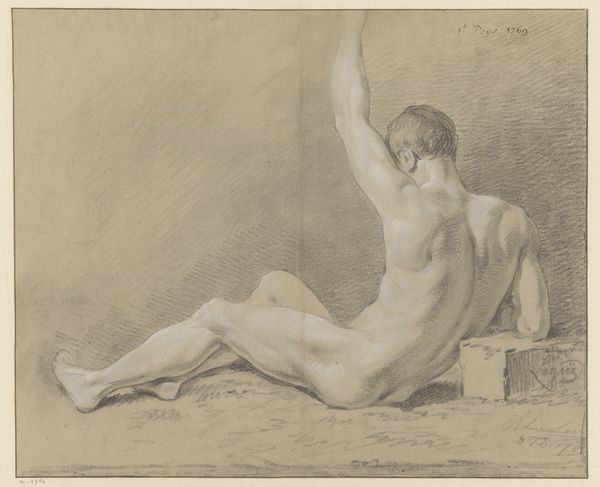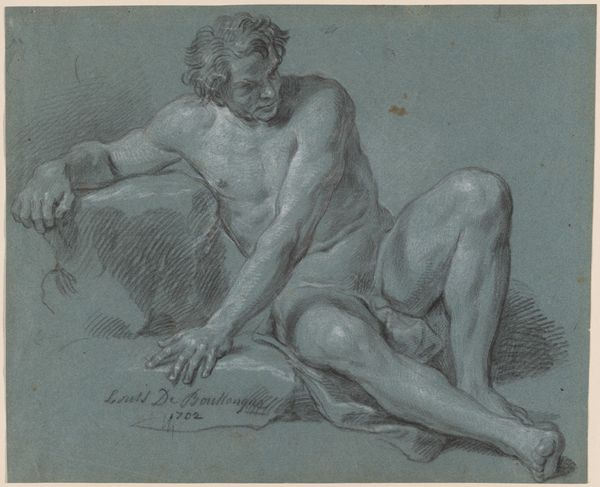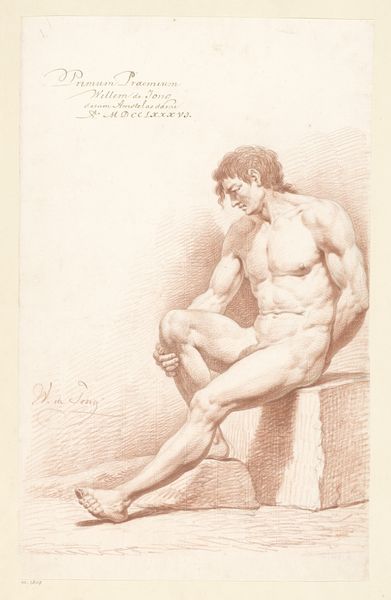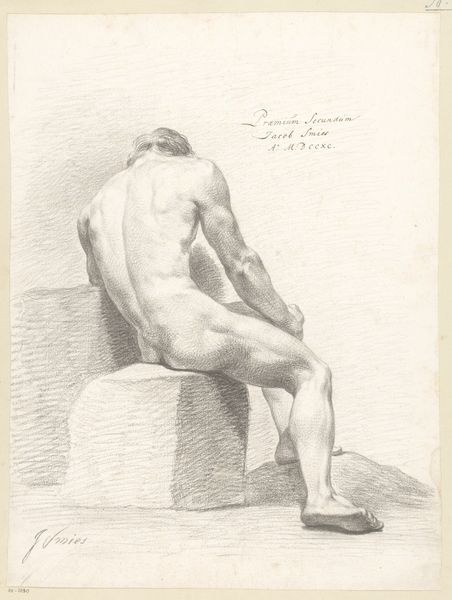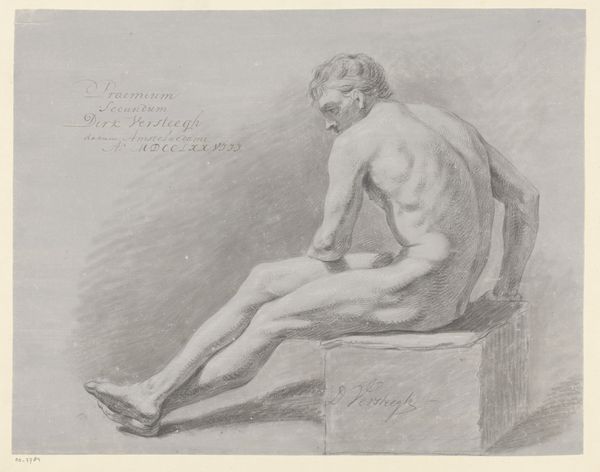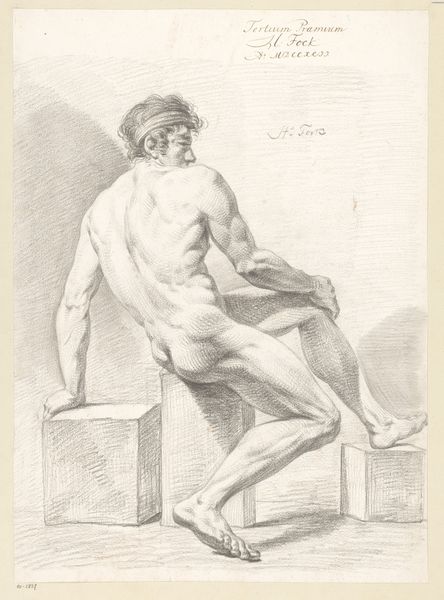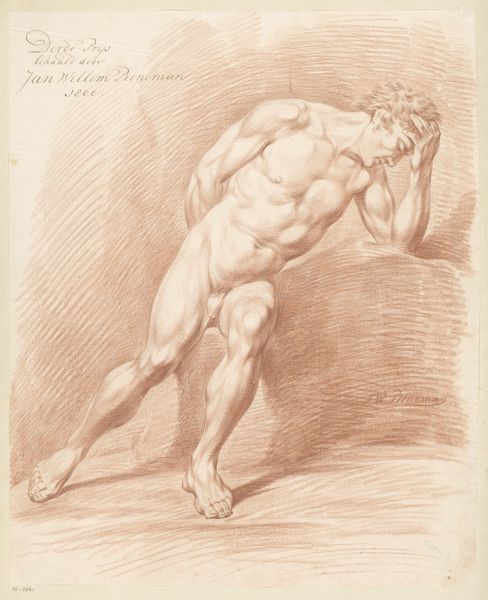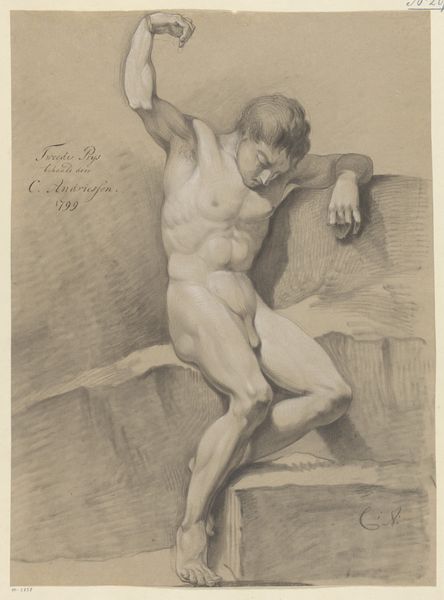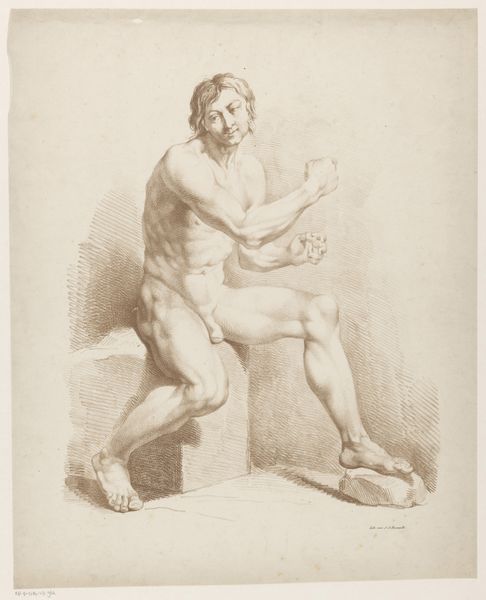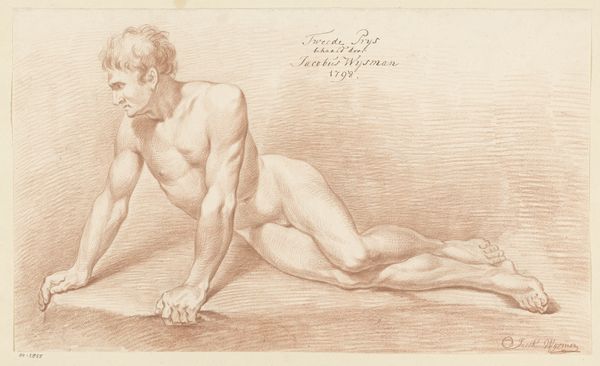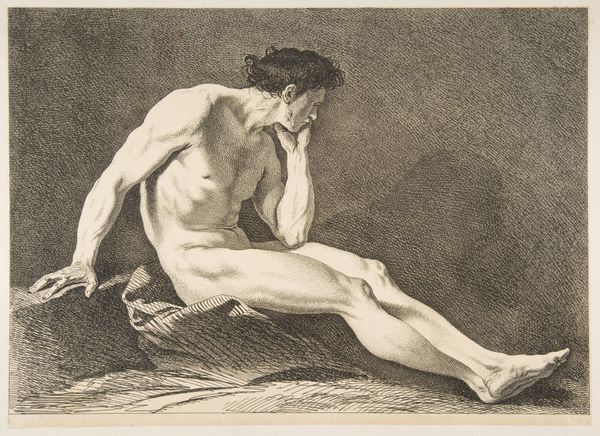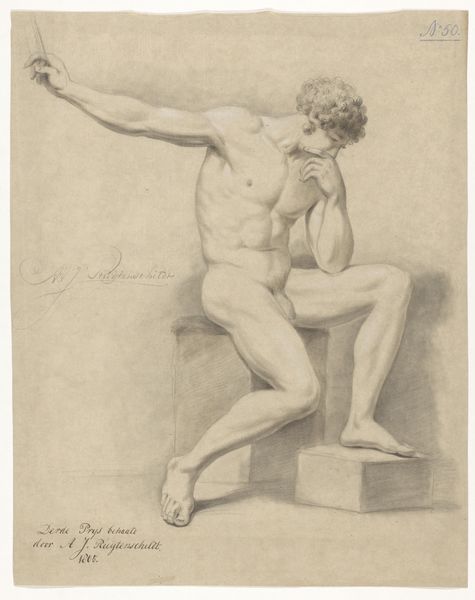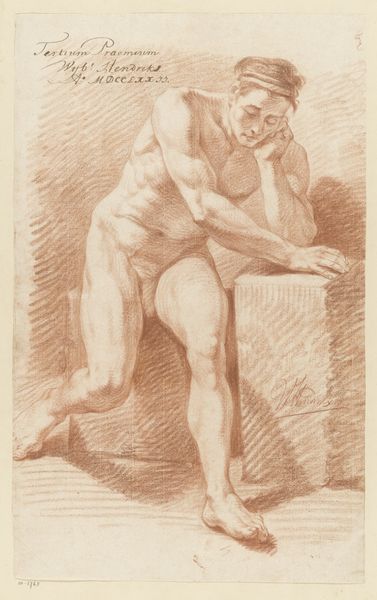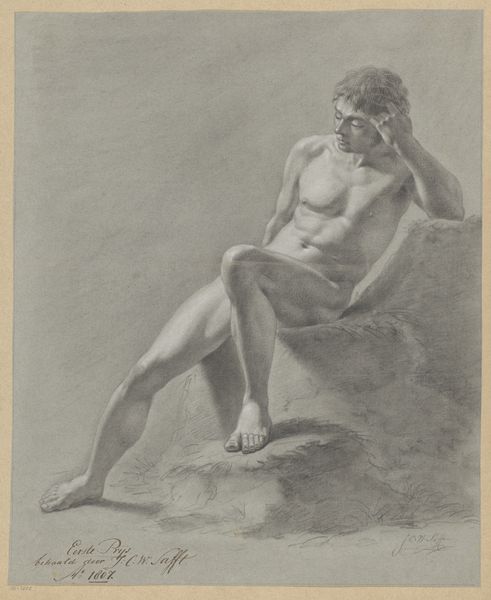
drawing, paper, pencil
#
portrait
#
drawing
#
pencil sketch
#
classical-realism
#
charcoal drawing
#
paper
#
pencil drawing
#
pencil
#
portrait drawing
#
academic-art
#
nude
Dimensions: height 349 mm, width 452 mm
Copyright: Rijks Museum: Open Domain
Curator: This is "Seated Male Nude, Front View (3rd Prize 1776)" a pencil drawing from 1776 by Jan Lucas van der Beek, housed right here at the Rijksmuseum. It’s quite an intriguing piece, wouldn’t you agree? Editor: Yes, immediately I am struck by a sort of melancholy, the subject's pensive gaze offset by the rigidity of the geometric form beneath his arm. There's a real push and pull. Curator: Absolutely. This drawing highlights the role of art academies in shaping artistic practices. It was awarded third prize in 1776, reflective of the importance placed on anatomical study and classical ideals. It’s really a product of its institutional environment. Editor: You see echoes of that classical form. The way the light plays across his body is reminiscent of depictions of ancient Greek or Roman heroes. He embodies idealized masculinity, yet there's also something very human about his downcast expression. Curator: I find that fascinating too. The visual language definitely draws on classical precedent to inform perceptions. Think of the cultural obsession in that period with the rediscovery of antiquity and its reinterpretation through art. This prize winning drawing highlights that very clearly. Editor: Consider the subtle use of shadows and highlights. The artist utilizes chiaroscuro not just to create depth, but also to evoke an atmosphere, drawing on long traditions of associating light and darkness with knowledge and the unknown. It adds to this aura of inward reflection. Curator: Precisely! And that the nude form was prized says a lot about academic standards and cultural assumptions circulating then. Today we see it anew, as something that reflected both the ideals and anxieties of that time. Editor: It’s amazing how an image created centuries ago can still resonate, prompting new reflections on beauty, emotion, and our relationship with the past. Curator: Indeed. Viewing van der Beek's drawing through both an academic lens and an exploration of its visual symbolism enhances our understanding of the historical and cultural values ingrained in it. Editor: Exactly, I leave feeling a heightened awareness of how imagery not only reflects, but shapes and preserves the ebb and flow of culture over time.
Comments
No comments
Be the first to comment and join the conversation on the ultimate creative platform.
